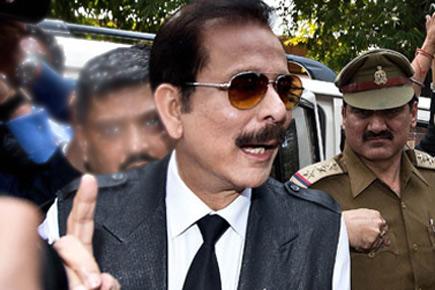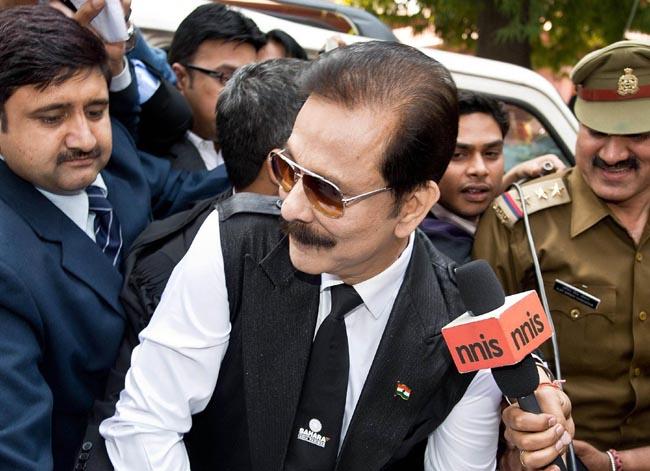In a sudden twist in the Sahara Group case, Supreme Court judge Justice J S Khehar has recused himself from hearing the matter following which a new bench has been constituted

New Delhi: In a sudden twist in the Sahara Group case, Supreme Court judge Justice J S Khehar has recused himself from hearing the matter following which a new bench has been constituted.
"A communication dated May 6, 2014 received from Justice J S Khehar was placed before the Chief Justice of India on May 7. On May 7 itself, the CJI has been pleased to constitute another bench to hear the matter relating to Sahara Group....," Rakesh Sharma, Deputy Registrar of the apex court, said in a release today.

Subrata Roy Sahara
The release, read out by the official at a press conference here, said that Justice Khehar had written a letter the day when he and Justice K S Radhakrishnan decided a petition filed by Sahara Group chief Subrata Roy. Justice Radhakrishnan, who retired on May 14, has gone on record saying that the bench was under immense pressure in the Sahara case.
The SC official, however, did not disclose the details of the new bench which will now hear the petitions relating to Sahara Group.
The bench of justices K S Radhakrishnan and J S Khehar in its May 6 judgement had upheld its order jailing Subrata Roy and rejected his claim that rules of natural justice were not followed in the case.
65-year-old Roy, who has been in jail since March 4 for non-refund of over Rs 20,000 crore to depositors, was asked by the court to make a fresh proposal for paying Rs 10,000 crore to get bail.
The court had passed the order on a petition filed by Roy challenging constitutional validity of its order passed on March 4 by which he was sent to jail for not complying with its order to deposit around Rs 20,000 crore of investors money with SEBI.
The bench in a strongly-worded judgement had come down heavily on the Group for "systematically" frustrating and flouting all its orders with impunity on refunding investors' money.
It had said the Group "adopted a demeanour of defiance constituting a rebellious behaviour, not amenable to the rule of law" and justified its decision to send Roy along with two promoters of two Sahara companies to jail.
 Subscribe today by clicking the link and stay updated with the latest news!" Click here!
Subscribe today by clicking the link and stay updated with the latest news!" Click here!









